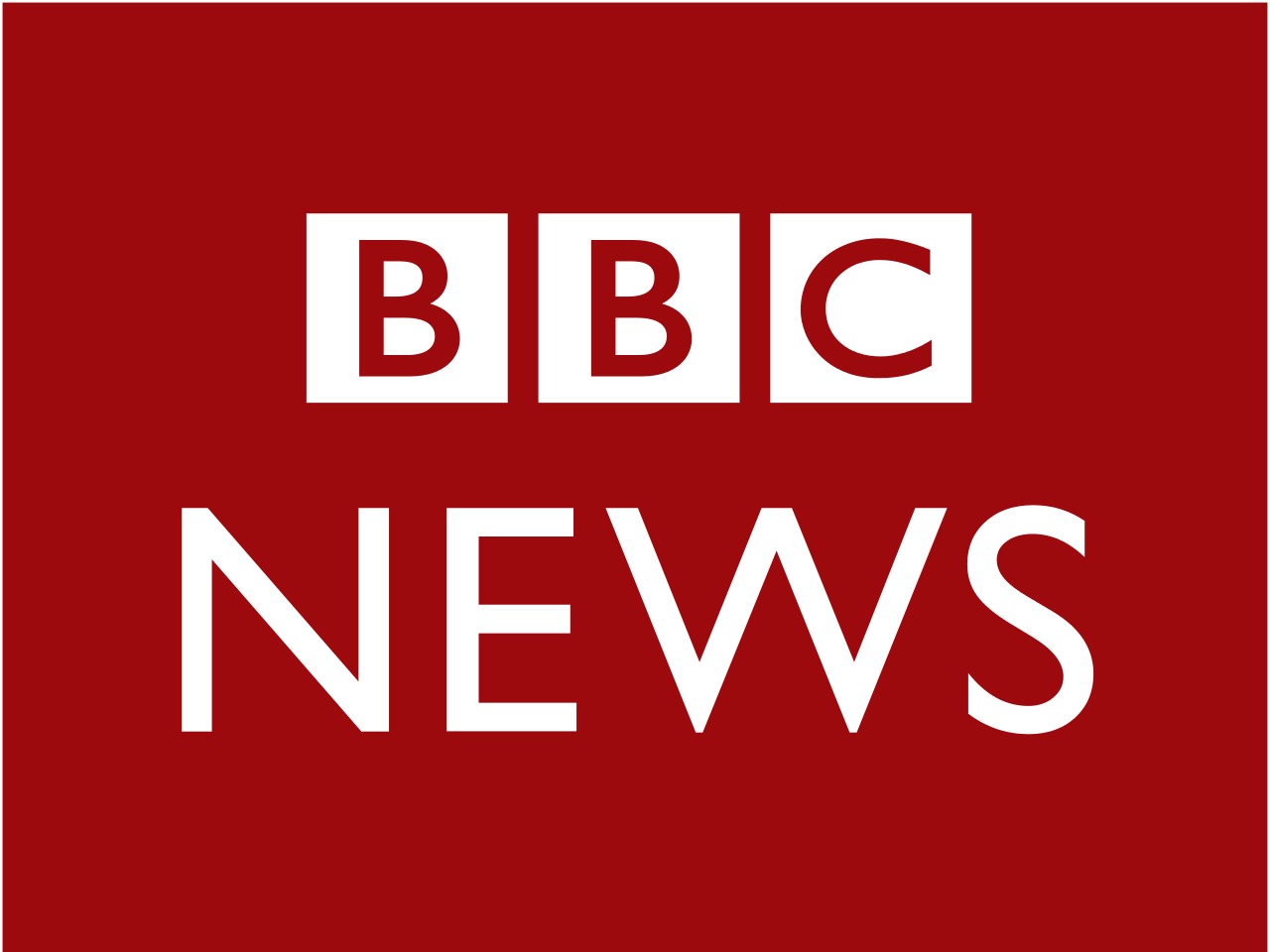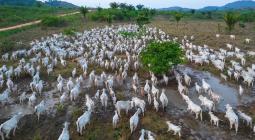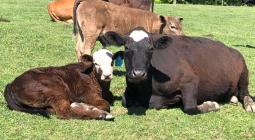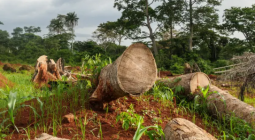Cerrado: Beef trade risks key Brazil ecosystem - campaigners
Beef production by three of the world's biggest meatpackers has been linked to illegal deforestation in Brazil's Cerrado, according to campaigners.
The savannah, which featured in Planet Earth III, hosts 5% of Earth's species and is a buffer against global warming.
In one part of the Cerrado, nearly half of the farms supplying the companies had cut down trees, the Global Witness investigation suggests.
The companies, JBS, Minerva and Marfrig said they acted in line with local law.
The Cerrado sits next to the Amazon but unlike its neighbouring habitat has not been afforded the same protections. An upcoming EU law to reduce the import of products from deforested land does not include much of the Cerrado, as it is not considered a forest under the legislation.
In the last year the rate of deforestation in the Amazon has halved whilst in the Cerrado it surged by 43% according to data from Brazilian space agency Inpe.
Simon Roach, senior investigative journalist from Global Witness, told the BBC: "Everyone knows that the Amazon is in crisis and it rightly has had attention from lawmakers and the public, but next door you have this very important ecosystem that has not been protected to the same extent."
The Cerrado savannah is described by Sir David Attenborough in the BBC documentary series Planet Earth III as a "grassland paradise". It covers nearly a fifth of Brazil's territory and hosts 5% of the world's species, including more than 6,000 types of tree.
It is also a vital store of planet-warming carbon - it is estimated it holds 13.7 billion tonnes of carbon dioxide, which is more than China released last year.
For decades it has suffered deforestation, as land is cleared for agriculture and mining. But a new investigation from international environmental and human rights charity Global Witness, and exclusively shared with the BBC, reveals the extent to which this Cerrado deforestation is illegal and is being driven by the cattle trade.
Although the Cerrado extends across 11 states the researchers focused their efforts on Mato Grosso - as it has the country's largest cattle herd and contains parts of both the Cerrado and the Amazon.
The three biggest meatpackers operating here are JBS, Minerva and Marfrig - who supply meat to the world and collectively turned over $98.15bn (£78.2bn) in 2022.
Each animal slaughtered by the meatpackers has a transfer permit detailing which farm in Mato Grosso they are brought from. The most recent permits available are from 2019.
The researchers looked at the permits and then used satellite data to see whether there had been deforestation at those farms over the preceding 11 years.
Global Witness estimate that between 2008 and 2019 an area of forest bigger than Chicago was felled within ranches supplying the three beef firms across Mato Grosso.
And for those farms based in the Cerrado 42% had suffered deforestation.
Deforestation is allowed under a state permit but Global Witness found permits covered only 1% of the land deforested, suggesting the majority was illegal.
Dr Viola Heinrich, a post doctoral researcher in climate science at Potsdam University, who was not involved in the study, said the figures may be higher. The researchers only counted deforestation that was bigger than or equal to 6.27 ha (15.5 acres) - as this is what the state will prosecute.
When asked about the findings Marfrig said that "it does not acquire animals from deforested areas" and that all of its supplies must meet the Brazilian Federal Prosecutor's deforestation rules.
JBS also made this point and said it had already removed 14% of the farms in Global Witness' analysis for non-compliance.
Minerva said there is no illegal deforestation in its supply chains.
Brazilian officials have said that tackling deforestation in the Cerrado is particularly difficult because regulation is set at the state level instead of being governed by national laws.
As well as releasing thousands of tonnes of carbon, deforestation threatens the habitats and lives of animals living in the Cerrado.
Last year the BBC's Planet Earth III team revealed the risk to the rare maned wolf from fires used for clearing the savannah for farming. The mother wolf, Norenia, and two of her puppies featured in the series were tragically found dead in a farmer's ditch following filming.
According to Brazilian government trade data, in 2019 most of the beef from Mato Grosso ended up in China, but beef from the state worth over $7.4m (£5.9m) went to the UK.
From the end of this year businesses will no longer be able to trade agricultural products in the EU which are linked to deforestation abroad, which includes the Amazon. But currently under the law's definition of "forests" much of the Cerrado is not included as the trees are not tall enough - leaving millions of trees exposed.
Dr Viola Heinrich told the BBC: "The study's framing around EUDR [the law] is important. The results bring to light the need to carefully reconsider what is defined as deforestation under the EUDR and consider natural vegetation loss outside forested biomes."
The EU Commission told the BBC that the EU regulation will still cover two thirds of the Cerrado and during its first review of the legislation will look at expanding what areas are included.
"This legislation will make little difference to deforestation in the Cerrado if it is left out," said Alice Thault, the executive-secretary of Instituto Centro de Vida, an environmental community organisation from Mato Grosso state.
The researchers were only able to get data on cattle up to 2019 because the transfer permits known as GTAs are no longer released publicly.
Mr Roach, from Global Witness, told the BBC: "There has been a transparency issue in Brazil in recent years and it has become a lot trickier to get data.
"So, more transparency is needed if we want greater accountability around deforestation."
Cover photo: The Cerrado is the largest grassland in the world and hosts 5% of the world's species





